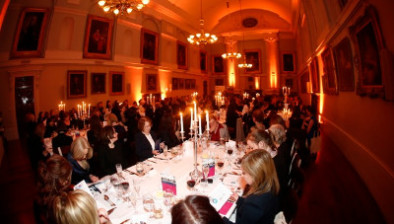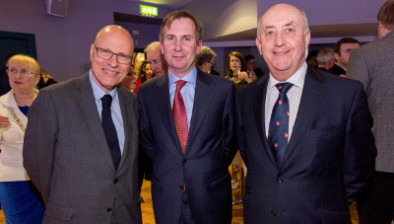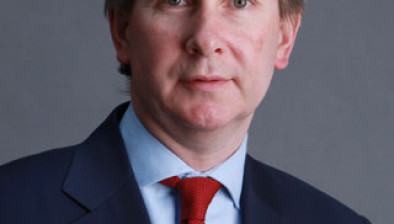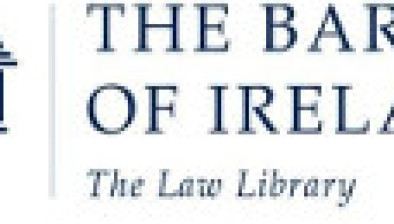Mr Justice Barniville: Judges have a role in social change in Ireland
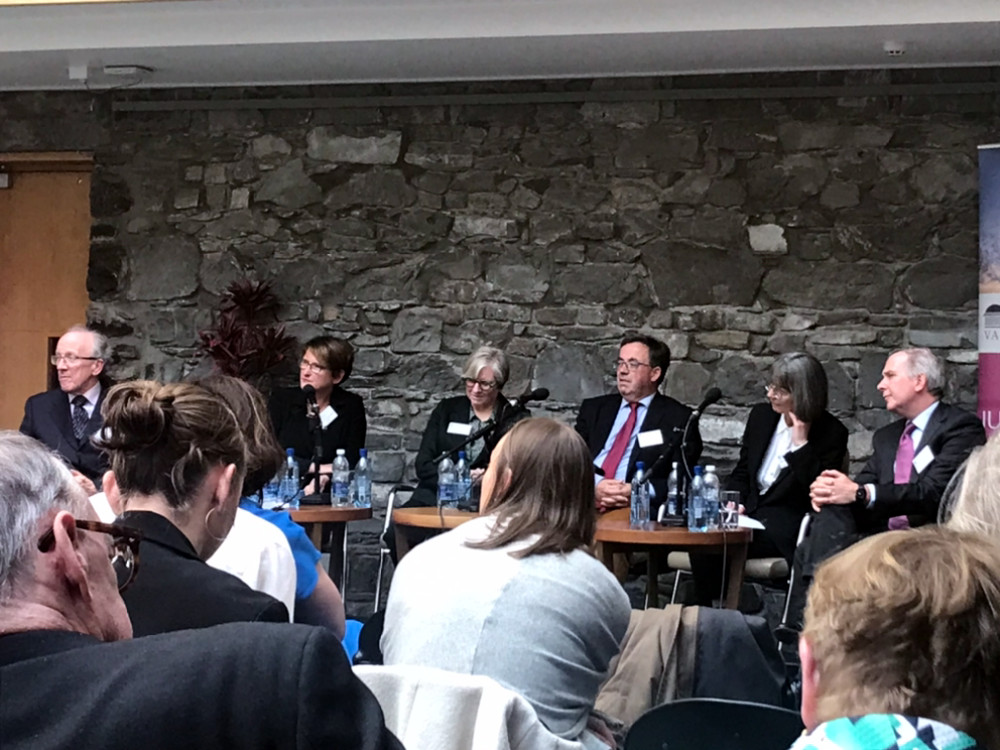
Judges at the Bar's conference on law and social change
Judges have a role in effecting social change in Ireland but have to push their own views “to the back of our minds” when making decisions, High Court president Mr Justice David Barniville has said.
The judge was joined by Mr Justice Gerard Hogan, Ms Justice Siobhán Phelan, Ms Justice Iseult O’Malley and Ms Justice Aileen Donnelly for a panel discussion closing a conference on law and social change hosted by The Bar of Ireland on Friday.
Mr Justice Barniville began by emphasising how “really terrific” the Bar’s Voluntary Assistance Scheme (VAS) is, noting that it was something that he was involved in while he was at the bar. This was a sentiment echoed by all of the panellists and speakers throughout the day.
He was asked to speak on the role a judge has in effecting social change. “That’s pretty controversial”, he admitted. “I couldn’t work out how I would say anything about that without being seen to be too conservative or too liberal.”
The question that the judge asked himself was really whether judges should play any role. The first, and perhaps “obvious point”, that he came to was that judges do have a role in this, and this can be seen in events such as the one he was speaking at, where judges took an active role in the conference as guests and speakers.
He noted: “I’m not sure there’s ever been a conference like this, that has had such participation from members of the judiciary, from the Chief Justice down.”
Mr Justice Barniville stressed that judges decide cases based on the facts before them, and the legal submissions of the parties. They don’t go into a case with a desire for a particular result.
However, he stressed that “judges are human — well, most of them anyway — and we have our own viewpoints and opinions on lots of things […] but we have to put that to the back of our minds”, and they have to be careful not to trespass onto the functions of the legislature and the executive.
Judges “may be uncomfortable with the particular result of the case, which may not coincide with what their personal views may be, but they are driven to reach their decision based on the facts of the case”, he noted.
This sentiment was echoed by Ms Justice Donnelly, who discussed the role of the judge and the role of the court. In discussing social interest cases, she stressed the importance of evidence and proofs: “People need to remember that they have to prove their case.”
She went on to explain that this is particularly true when a party attempts to rely on some novel opinion of a foreign court, but have not taken the time to establish these facts in their own case.
Ms Justice O’Malley spoke on the role of amicus curiae, an individual or organisation who is not a party to a legal case but who is permitted to assist a court by offering information, expertise or insight that has a bearing on the issues in the case.
She discussed the history of this function, highlighting that originally this role quite often involved a barrister standing in court, who wasn’t involved in the case, but either volunteered or was asked to provide some information to the court, such as an authority that the parties in the case were not aware of.
Ms Justice O’Malley noted that this might have had more “traction” in the days when “law reports arrived on the mail boat, rather than electronically”. She recalled being “stunned” when she was once asked to act as an amicus curiae for a moment on a matter relating to social welfare law — “it was all I could not to simply flee from the court”.
Mr Justice Hogan also spoke on the topic of amicus curiae. He noted that although lay litigants have “done a fantastic job” to present evidence in their cases, “there is no doubt but that legal representation matters”.
There have been cases, he said, “where we have not had the benefit of an amicus when we really would have liked to have had it”. He went on to explain that judges can have a role in court which vindicates constitutional rights.
He argued: “Just don’t forget that for all the failures, and disappointments and grumbling about judges — don’t worry, we grumble about counsel too, and solicitors sometimes too — but don’t forget that there have been over 100 cases in which laws have been found unconstitutional since 1937.”
That record speaks to the role of the court in terms of social change and impact, he suggested.
The conference also touched on issues beyond the role of judges, including a panel discussion on litigating for social change with Dearbhail McDonald; Michael Lynn SC; Sinead Lucey, managing solicitor of FLAC; and Grainne Teggart, deputy programme director for Northern Ireland at Amnesty International UK.
The conference also saw presentations from Cathy Smith SC; Chief Justice Donal O’Donnell; Bar chairperson Sara Phelan SC; and Lewis Mooney BL, co-ordinator of the Bar’s Voluntary Assistance Scheme.
It was organised to promote the Voluntary Assistance Scheme, which was established in 2004 and functions as the formal pro bono vehicle of the Bar.
The VAS matches the needs of NGOs and civil society groups with the volunteering expertise at the Bar, having worked with organisations such as the Irish Traveller Movement, Migrant Rights Centre, Women’s Aid, and the Gay and Lesbian Equality Network.
When VAS agrees to take on a piece of work a barrister experienced in the relevant area is assigned to the case and will work with the organisation. If a case involves court proceedings, a solicitor enlisted by VAS instructs the assigned barrister.
This service is all provided free of charge. Organisations in need of assistance, or representing individuals who require assistance, can contact VAS at VAS@lawlibrary.ie.








